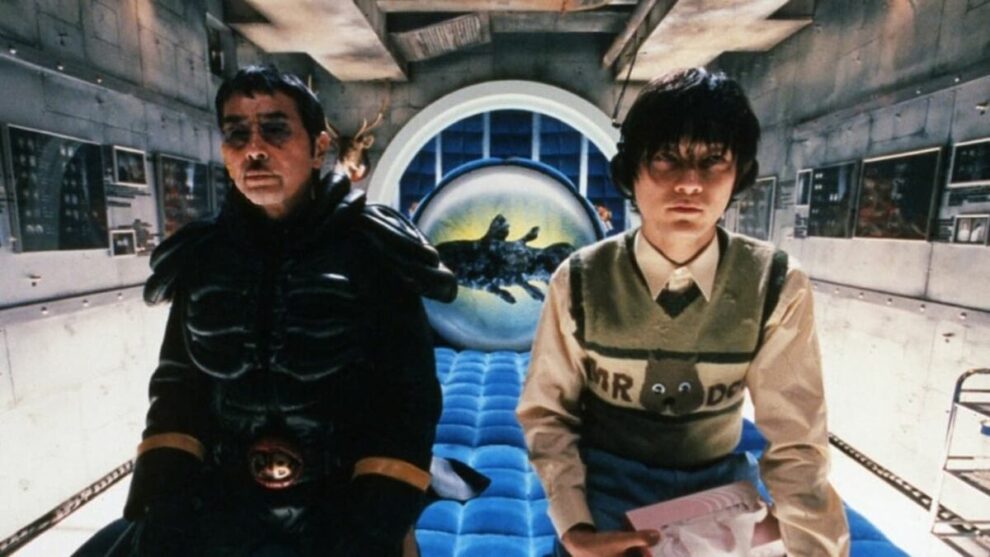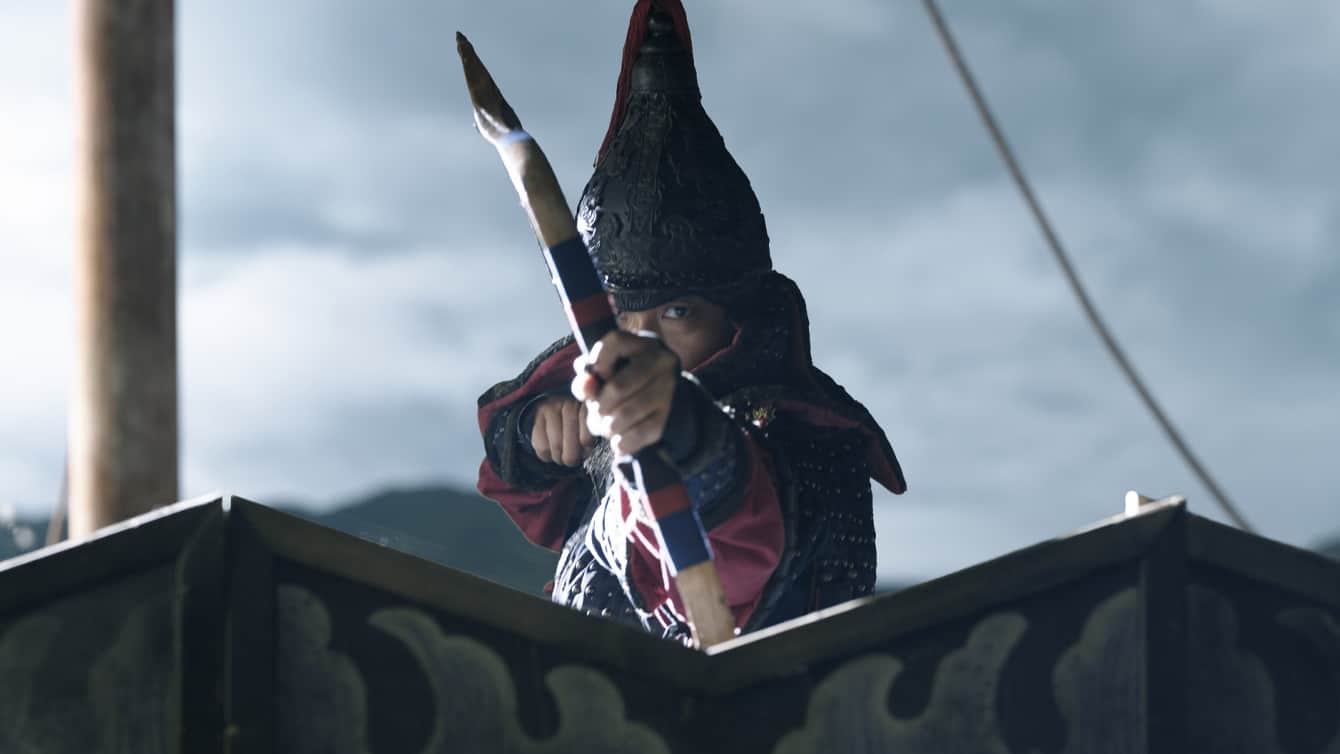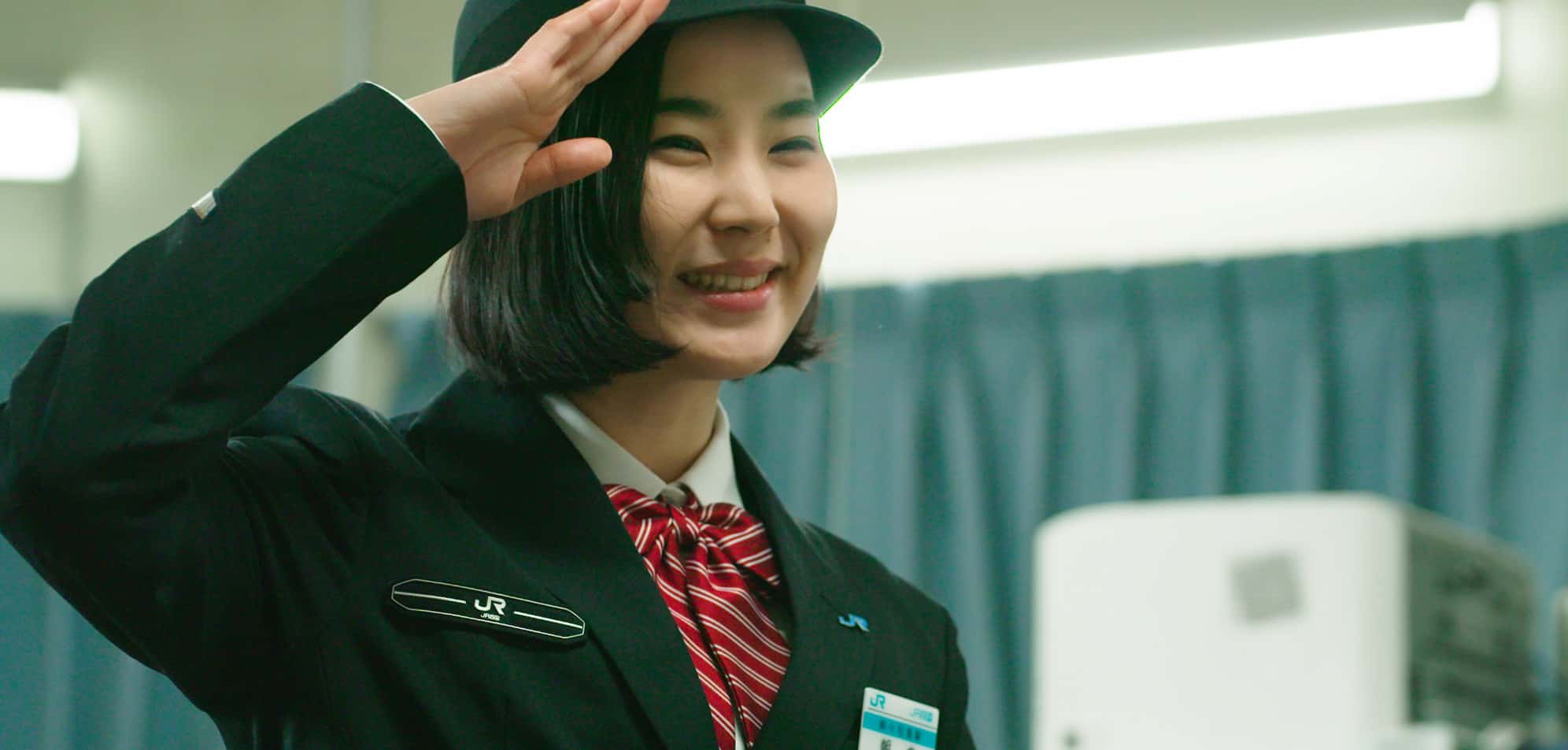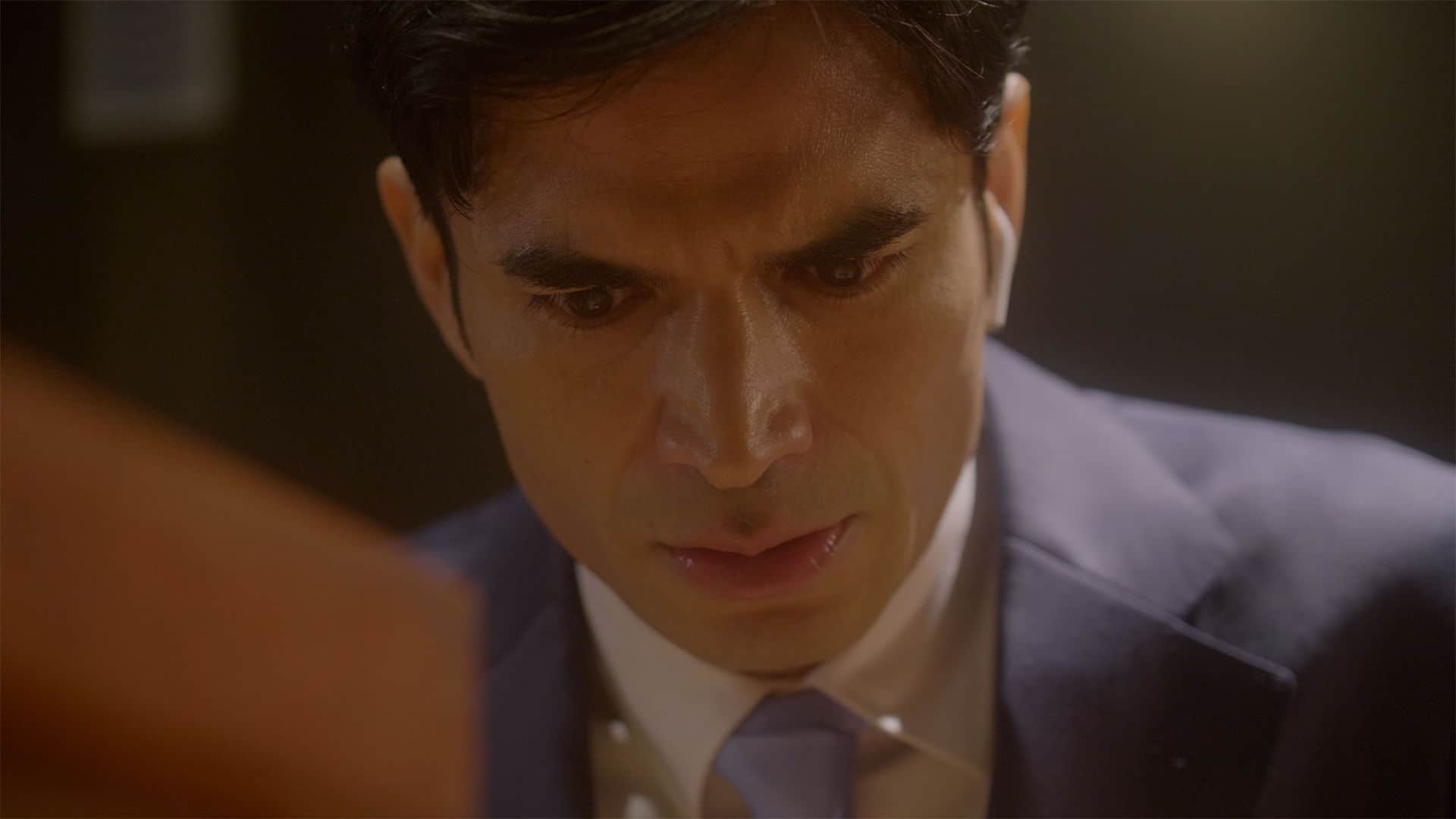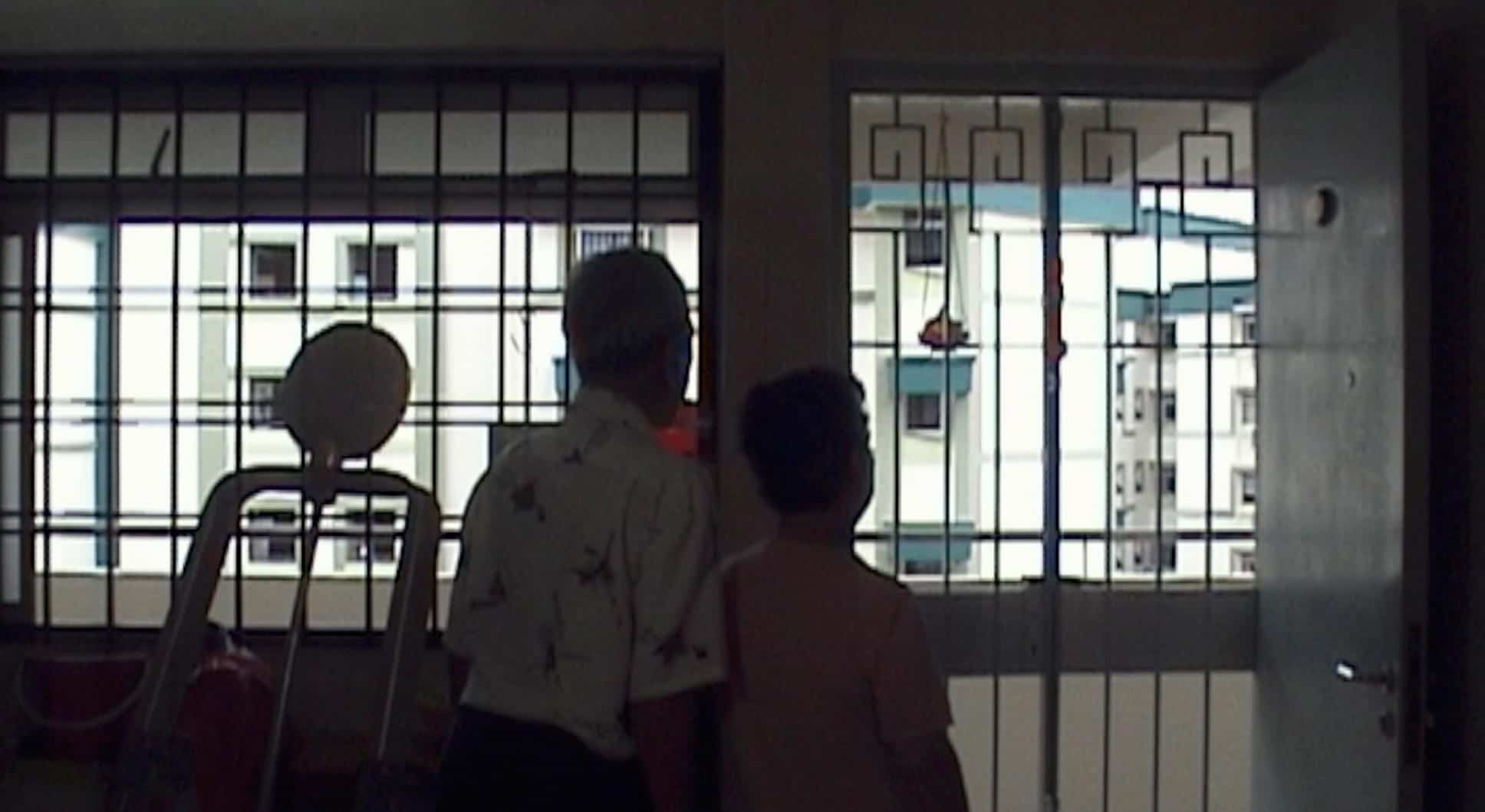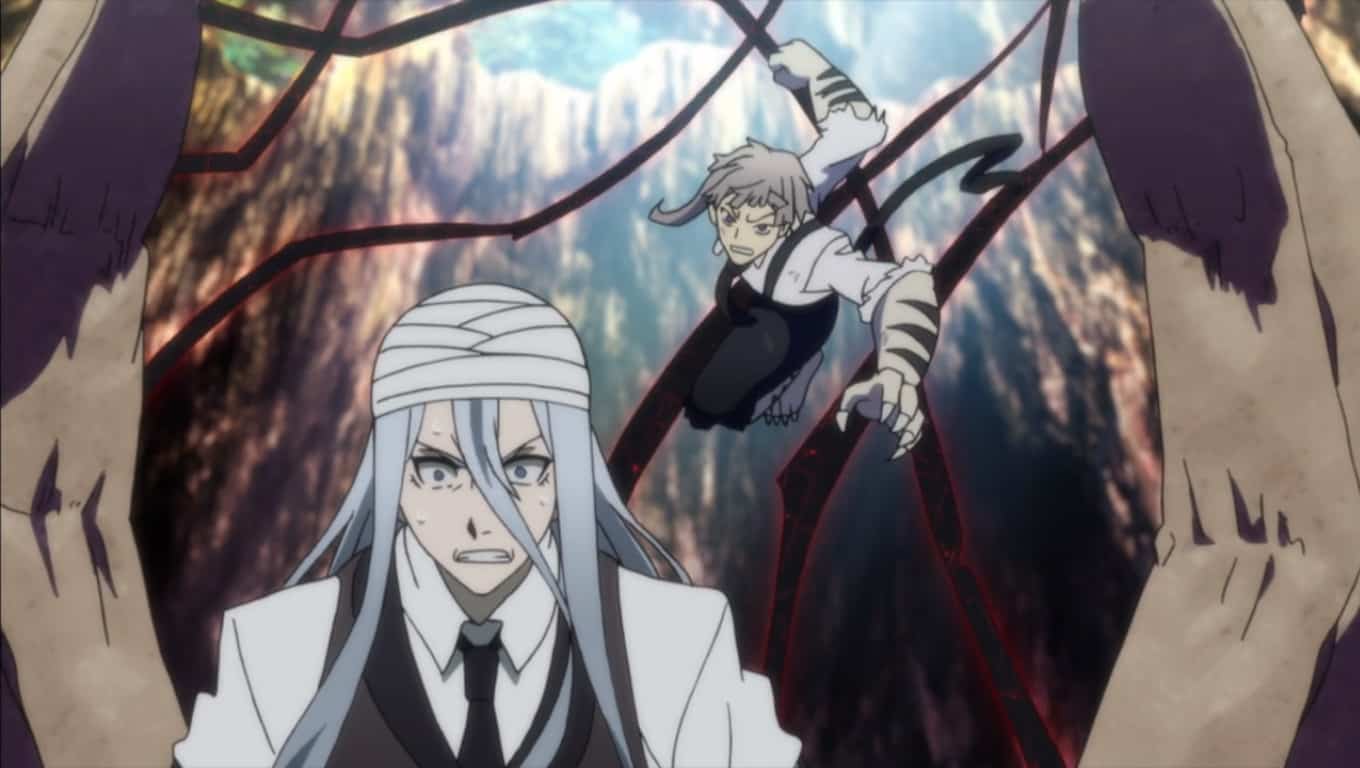After “Shark Skin Man and the Peach Hip Girl”, director Katsuhito Ishii had established himself as one of the many new, unique voices within the Japanese film industry. The adaptation of Minetaro Mochizuki's manga also managed to raise some eyebrows internationally and displayed the filmmaker's style as well as the themes he wanted to talk about, namely the contrast of make-believe and reality, which has become quite blurry over time, especially due to the rise of social media. In his next project “Party 7”, Ishii would venture deeper into this theme, while also expanding his use of the language of cinema, creating yet another unique and creative feature about the lies we tell ourselves and others, and how they become real in the end.
Buy This Title
on Terracotta
Chased by the members of his gang, Miki (Masatoshi Nagase) seeks refuge in the hotel New Mexico, a place well-hidden from any tourists and visitors, thus making it ideal to lay low for a while. However, his hiding place is not a secret as more and more people turn up at the door to his room wanting either money or a few words with the small-time gangster. First, his ex Kana (Akemi Kobayashi) shows up, demanding to be paid the money he owes her, only to be followed by Okada (Todohei Todohira), her new boyfriend, who quickly engages in a fight with Miki to show his girlfriend who is the better lover and friend. Things become even more complicated when Sonoda (Keisuke Horibe) arrives also, set on bringing his friend to their boss, after having been shown the trust of his employer.
Meanwhile, the hotel owner, a man only going by the alias Captain Banana (Yoshio Harada), has been observing them the whole time from his hidden room. He is joined by his nephew Okita (Tadanobu Asano), a renown peeping tom who has been arrested several times by the police. As the young man is trying to grasp why his uncle is wearing a strange superhero-like outfit, Captain Banana tries to convince him to become like him and follow in his father's footsteps, as Okita's dad was also a peeping tom and also a superhero in his own right.
For those familiar with the director's filmography, “Party 7” will likely become a key piece in understanding Ishii's development as a storyteller, especially considering how he developed the themes constituting his body of work. As with his other feature, the “weirdness” and “strangeness” (for lack of a better word) disguises a truth that is often hidden in plain sight, whether it is the truth about a character's personality and family or whether it is a character trying to hide his baldness using a badly disguised wig. Throughout the movie, you may observe that what is even weirder is the kind of complicated narratives these characters have invented to hide something from their friends, families and lovers, with Yoshio Harada's Captain Banana being the most extreme example. It is certainly an interesting concept Ishii has in story for his viewer, resulting in some scenes being quite hilarious and some being very emotional, at times a bit cheesy even.
At the same time, this idea goes hand in hand with the overall design and the acting. The two rooms, where the main action takes place, are shot in a way which emphasizes the notion of “Party 7” being essentially a chamber drama. Even though the lack of variety becomes somewhat exhausting after a while, the ongoing revelations about the characters, as they begin to show their true selves or realise the lies they have chosen to believe will likely keep you engaged. This is also thanks to the performers, especially Masatoshi Nagase, Todohei Todohira and Keisuke Horibe whose scenes are easily among the funniest, but are also quite touching as their characters' self-delusions begin to crumble.
In the end, “Party 7” is another unique genre-bender by director Katsuhito Ishii. While not every moment and scene may reach its mark, the performances, the design and the themes of his feature make it both entertaining and funny, while also quite profound as well.


